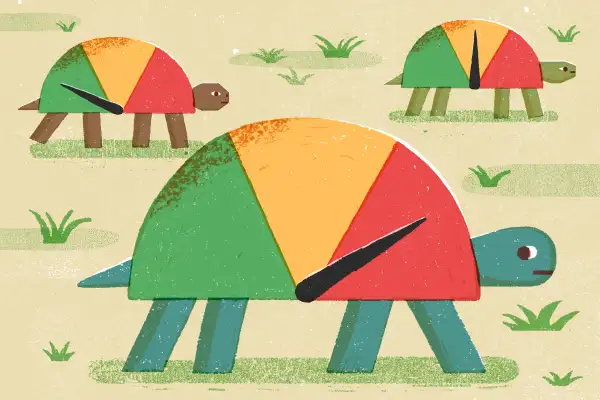7 Missed Bills and What They Do To Your Credit Score

Maintaining a good credit score can feel like a game at times.
The algorithms credit reporting agencies like Equifax use for assessing creditworthiness are confidential — making the consequences of missing a bill or taking on more debt hard to predict.
Still, experts say, certain missed payments can do serious damage to your credit score, especially if you’ve got a healthy one.
In general, a late payment from someone with a score of 700 and above will result in a significant drop, and will continue to fall with subsequent late payments, says Eric Espinoza, director of research and advocacy at Neighborhood Trust Financial Partners in New York.
“The higher you are, the harder you’re going to fall in terms of score,” he says.
There are other factors that impact your credit score, like the length of your credit history and the number of accounts you have open. Exact percentage drops are tough to pinpoint, but there are some across-the-board truths that apply to most people.
Here’s what happens to your credit score when you’re late on a bill.
Note: The points listed below are for a FICO score of approximately 680.
Mortgage bill
Point drop: 60-80 on your first late payment
Taking out a mortgage (and paying it on time) is one of the most effective ways to boost your credit score, but a missed payment can result in a quick drop. And a foreclosure can sink your credit score by a whopping 150 points, Espinoza says.
Late rent payments, for their part, do not show up on your credit report until they’re sold to a third-party debt collections agency.
Another caveat: If you qualify for mortgage forbearance under the CARES Act or have other exceptions, and you've received an official forbearance agreement from your lender, those late payments will not show up on your credit report.
Credit card bill
Point drop: 25-85 (30 days late)
A late credit card bill can dent your credit score, and result in additional fines or interest from your bank.
Most people won’t get dinged if paying a few days late, so settling the bill ASAP “will help to limit the impact on your credit score,” says Colleen McCreary, a consumer financial advocate at Credit Karma.
Scores will start dropping dramatically once a credit card bill is a month late, McCreary says, and will fall even further once the late bill hits the 90-day mark.
Utility bill
Point drop: 0 (if paid within six months)
Late payments for water, electricity and other utilities are not directly reported to the credit agencies, so you’ll only get dinged if it ends up in collections, McCreary says.
Tip: If you're looking for ways to raise your credit score, services like Experian Boost allow you to buttress your credit history by self-reporting these types of payments.
Car loan
Point drop: 25-85 (30 days late)
If you miss an auto loan payment from the bank, it will have a similar trajectory to a missed credit card bill, but with a slightly longer grace period (typically about 10 days).
Keep in mind that missing multiple car payments means your car can be repossessed. So if you’ve got multiple debts, this one might be worth settling first, says Thomas Nitzsche, financial educator at the financial counseling nonprofit Money Management International.
“My clients in crisis have to prioritize...for most people, a car payment is how they are going to get to work,” he says.
Internet service
Point drop: 0 (if paid within six months)
Since streaming, internet, and cellphone services don’t report late payments to the credit bureaus, missing an internet bill usually won’t impact your credit score if you pay it off within 180 days.
But even if the negative information won’t impact your score, it’s important to pay the bill as soon as possible since you can still accrue late payment fees, and since the bill can eventually end up in collections.
“For those clients who put their head in the sand and wish it away, they are bound to get more damage,” Nitzsche says.
Medical bill
Point drop: 0 (if paid within six months)
Medical bills often arriving unexpectedly. The good news is, these bills won't impact your credit score unless you go a really long time without making a payment.
“An unpaid medical debt will not be included in your credit report unless it is 180 days or more past due,” says Rod Griffin, senior director of consumer education and advocacy at Experian.
Student loan
Point drop: 90-110 (if paid after 30 days)
Missing a student loan "can result in a number of consequences, such as delinquencies, defaulting, and, potentially, a ding to your credit score,” McCreary says.
As part of the Cares Act, consumers who miss federal student loan payments won't accrue interest, or suffer a ding to their credit, through the end of 2020. But unless new legislation passes before the end of the year, borrowers will be expected to begin paying back their student loan debt in January.
More on Credit & Credit Repair
Money’s Top Selection Guides for Improving Your Credit
Money’s Credit Repair Companies Reviews |